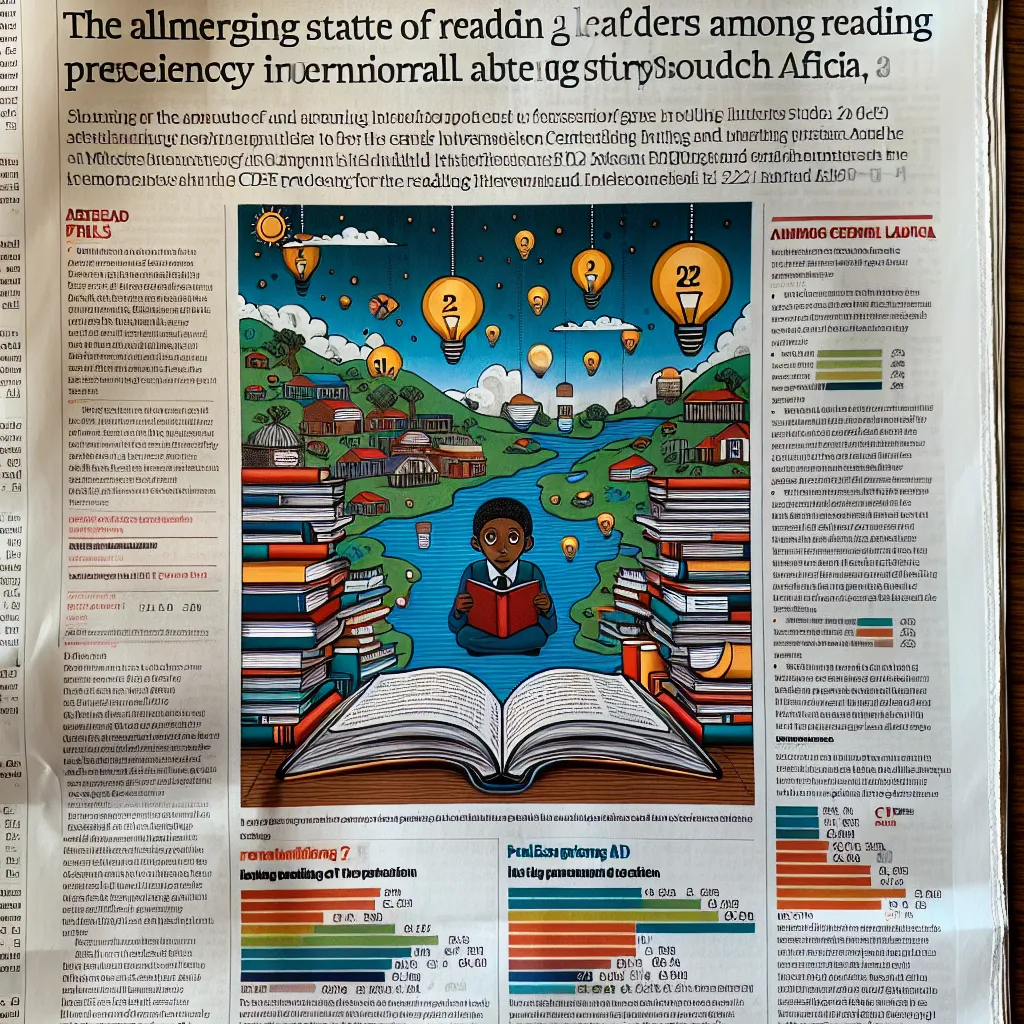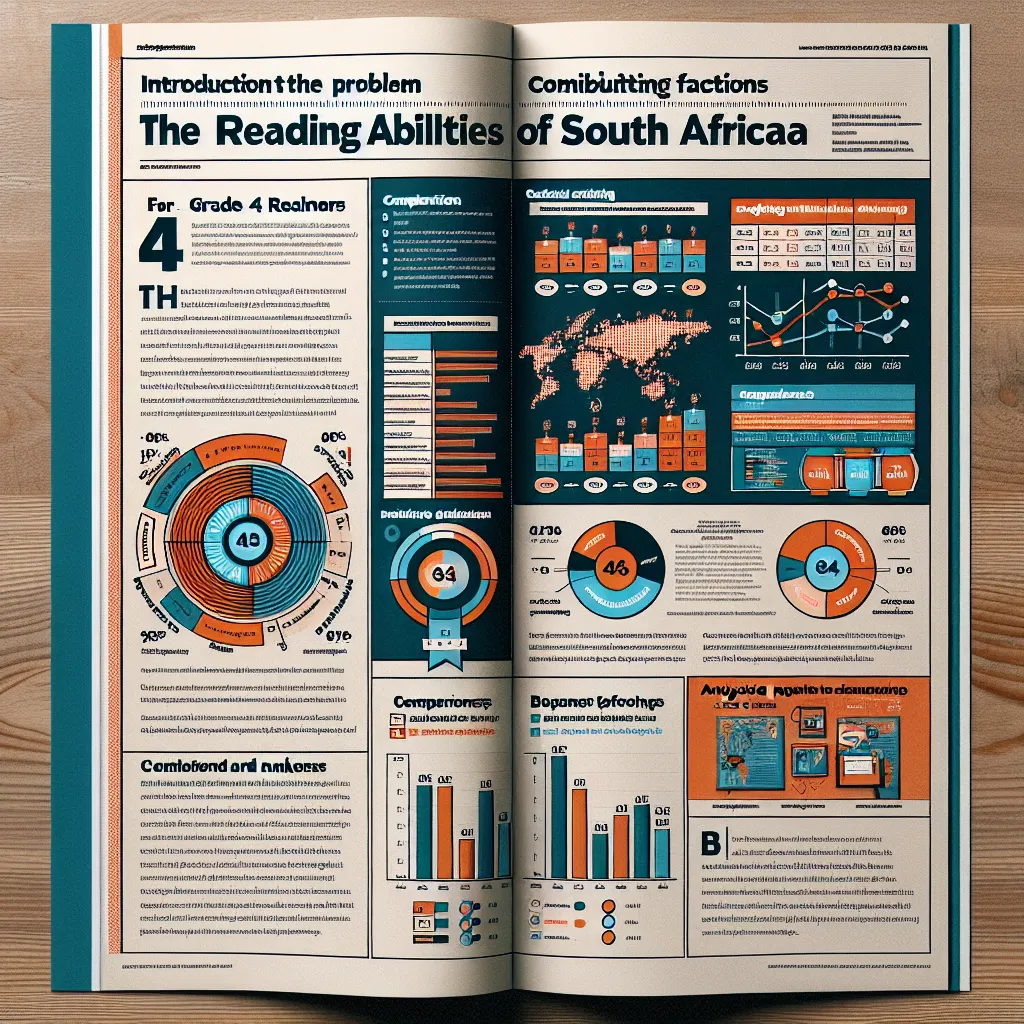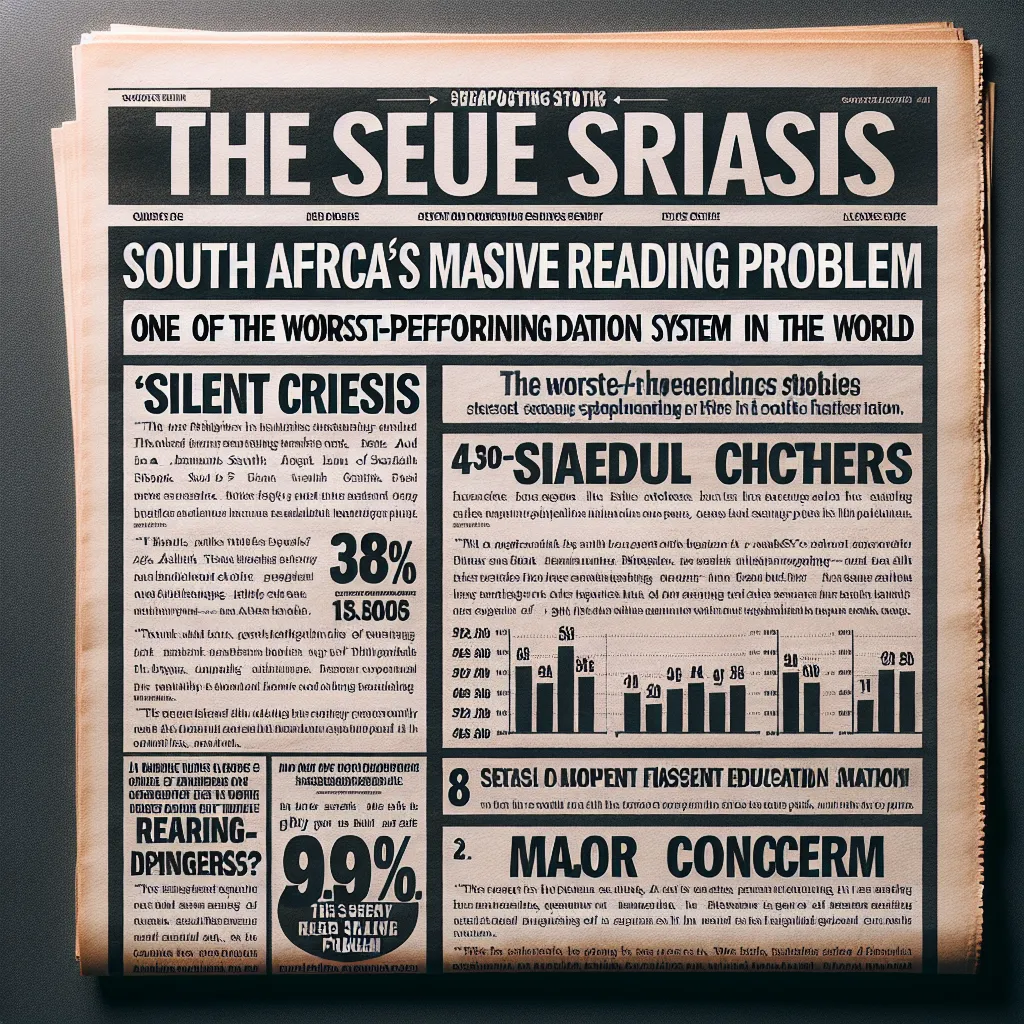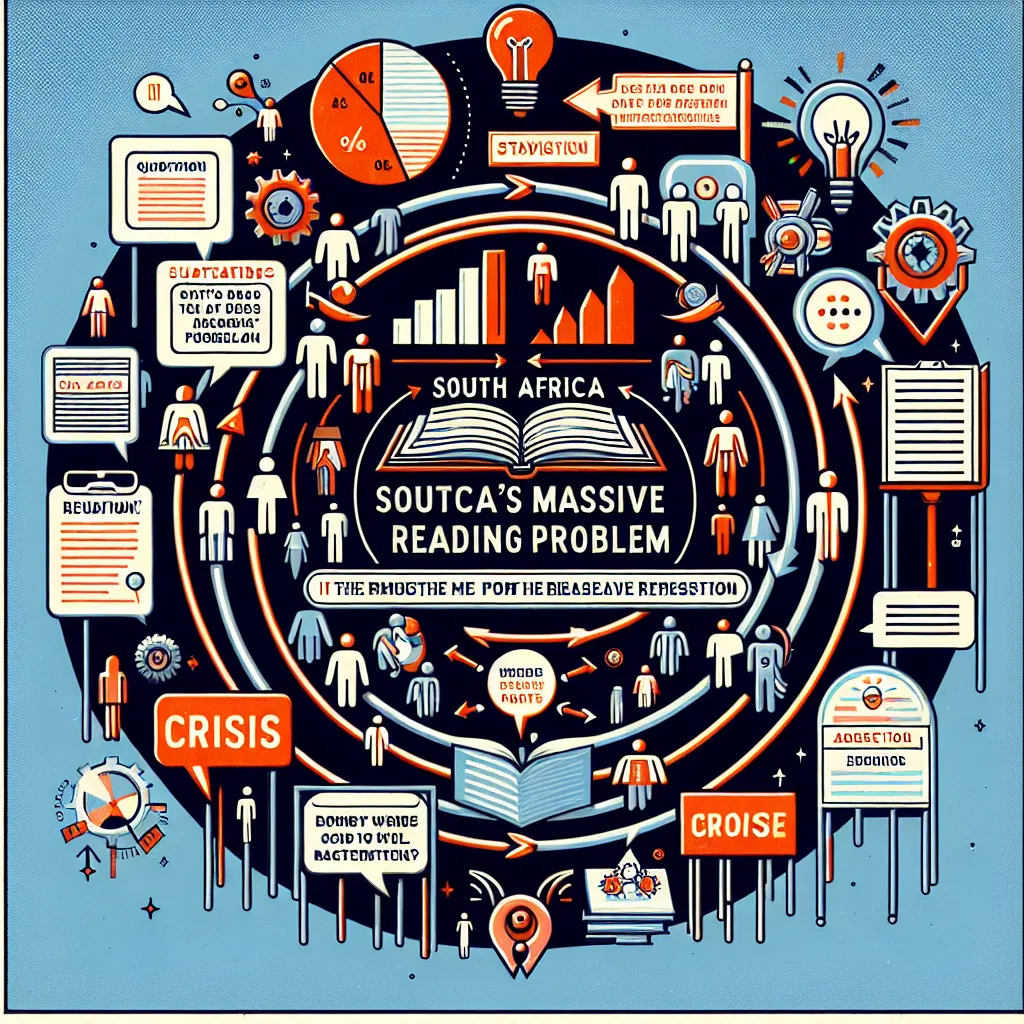Ask AI on The Internet
Question: South Africa’s massive reading problem Luke Fraser 16 May 2023 Grade 4 learners in South Africa have the worst reading ability in the world, with 81% incapable of reading for meaning. This is according to the 2021 Progress in International Reading Literacy Study (PIRLS 2021), which tested 12,426 learners across the country and compared them to students at a similar age level across 42 other nations. South Africa’s mean achievement score was 288 in the study, far below the 500 international average. Egypt was the second worst country in the study, but its score of 378 was well ahead of South Africa. A major concern for South Africa is that its achievement score has dropped significantly from the PIRLS 2016 study, where South Africa reported that 78% of children in Grade 4 could not read for meaning in any language. However, researchers noted that 21 of the 32 countries with trend data noticed a drop, with the Covid-19 pandemic having a major effect on teaching hours globally. In the 2021 study, Singapore (587), Hong Kong (573), the Russian Federation (567), England (588), and Finland (549) had the highest overall scores: The results in South Africa varied heavily across languages. Learners who were tested in Afrikaans and English scored significantly higher than those who were tested in African languages. Those tested in Afrikaans (387) and English (382) scored well above the average, while nine African languages scored below the mean, with Setswana (211) being the worstperforming language. Moreover, the Western Cape (363), Gauteng (320) and Kwa-Zulu Natal (297) outperformed the 288 mean, with more remote provinces Limpopo (244) and North-West (232) significantly lower. The biggest area of concern is that 81% of learners in the study were below the study’s low international benchmark, meaning that 81% of students cannot read for meaning. Moreover, only 11% of learners reached the low international benchmark, while 94% of students internationally could reach the low international benchmark. For South Africa, only 2% of readers could reach a high benchmark, while 1% reached the advanced benchmark. State of education The Centre for Development and Enterprise (CDE) previously said that South Africa has one of the worst-performing education systems in the world. “The President speaks of a ‘silent revolution’, while the minister talks of a ‘system on the rise’. The truth is that we face a silent crisis in our schools: South Africa has one of the worst performing education systems in the world,” said CDE’S Executive Director Ann Bernstein. The CDE said that South Africa spends roughly 13% of government revenue on education, which should improve competitive learning levels, reduce learning inequality, and train a large workforce. However, Professor Lant Pritchett said that South Africa is the biggest learning underperformer relative to GDP per capita among low and middle-income countries. Despite spending equivalent levels as high achieving Scandinavian countries, South Africa’s learning outcomes are worse than Kenya, Tanzania and Eswatini. Although poverty and ongoing infrastructural challenges have a debilitating effect on students, the incompetence of teachers has a massive effect on results. 80% of teachers in public schools lack the content knowledge and pedagogical skills for their subjects, For instance, the proficiency level of South African teachers (41%) is far below that of teachers in Zimbabwe (87%). Corruption is also not helping South Africa’s education system. A 2015 report by the National Education Evaluation and Development Unit (NEEDU) used to assess rural literacy found corrupt teacher hiring and promotion processes from union involvement. The “jobs for cash” scandal, as it was known, saw SADTU – the country’s dominant teacher union – get favoured individuals onto school governing bodies (SGBs) to ensure that those who paid positions could get them. The Minister of Education appointed a ministerial task team (MTT) to investigate the scandal, but Bernstein said that no government officials were prosecuted or suspended. Moreover, none of the MIT recommendations to tackle corruption have been implemented. Read: ‘Silent crisis’ at schools in South Africa – education department responds Source: South Africa’s massive reading problem – BusinessTech QUESTION 1: Genre, context, and register Read Text A and write a coherent and well-constructed answer in which you analyse the style
Analyzing the style of Text A requires looking at its genre, context, and register, as each element contributes to the overall communication and effectiveness of the piece. **Genre:** Text A falls under the genre of a news report or an investigative article. It is a factual, data-driven piece designed to inform the reader about the state of reading abilities among Grade 4 learners in South Africa, based on the findings of the 2021 Progress in International Reading Literacy Study (PIRLS). Its purpose is to present an alarming issue in education and highlight various aspects related to it, including statistical data, comparative international performance, and the implications for South Africa's education system. **Context:** The text is set in the context of an academic and social investigation into education problems in South Africa. The findings are based on an international study, giving the article a credible and authoritative foundation. The context further involves examining the ramifications of these issues, such as teacher competency, corruption, and government spending on education. **Register:** The register of Text A is formal, objective, and informative. It uses technical language and statistical data to support its arguments, evident in phrases like "mean achievement score," "low international benchmark," and "pedagogical skills." The tone is serious and urgent, reflecting the gravity of the educational crisis. ### Analysis of Style: 1. **Language and Diction:** - The language used is formal and academic, appropriate for a report discussing educational research. It avoids colloquial expressions and maintains a tone suitable for an informed audience. - The diction includes specific technical terms such as "PIRLS," "mean achievement score," and "pedagogical skills," reflecting the text's reliance on precise, subject-specific language. 2. **Structure and Organization:** - The text is methodically organized, beginning with the main findings of the PIRLS 2021 study and then providing detailed comparisons, reasons for the decline, and regional performance differences. - It follows a logical flow, firstly presenting the quantitative data, then examining qualitative aspects like teacher competency, and concluding with discussions of systemic issues like corruption. 3. **Use of Statistics:** - The extensive use of statistics (e.g., "81% incapable of reading for meaning," "mean achievement score was 288," "80% of teachers in public schools lack the content knowledge") reinforces the informative and evidence-based nature of the piece. - These statistics provide substantiation for the claims made and emphasize the severity of the reading problem. 4. **Comparative Analysis:** - The article uses international comparisons to highlight South Africa's poor performance in a global context, further stressing the urgency of the problem. Mentioning other countries like Egypt, Singapore, and Scandinavian nations helps put South Africa’s results in perspective. 5. **Tone and Engagement:** - The tone is concerned and somewhat critical, especially when discussing the roles of government spending, teacher incompetence, and corruption. - The text engages readers by laying out shocking statistics and painting a clear picture of the crisis's scope and contributing factors. 6. **Expert Testimony and References:** - Utilizing quotes and references from authorities like Ann Bernstein and Professor Lant Pritchett lends credibility to the article and strengthens its arguments about the systemic failures in South Africa’s education system. In conclusion, the style of Text A is defined by its formal, objective, and factual approach. The use of technical language, statistical data, structured organization, and expert opinions all contribute to its goal of thoroughly informing and alerting the reader about the significant reading challenges faced by Grade 4 learners in South Africa.
Think your answer is better than the AI's? Post it below.
Other Most Relevant Posts:
Question Tags
If you want your question answered by an AI, click here.







Post your own comment: